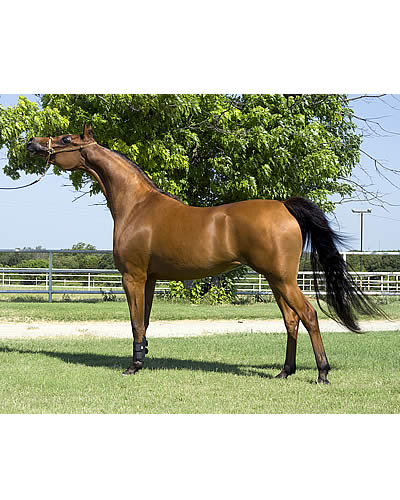Our knowledge of horse temperament has evolved over the years and is now informed by science. Some breeders and equestrians have long believed the nature vs nurture debate (whether temperament is primarily determined by the breed of the animal or the treatment of the animal at a young age) is a debate not worth having. Common horse-sense tells us both nature and nurture determine the temperament of a horse. But science doesn’t take horse-sense for an answer. Interested parties still ask the question: which one determines temperament more, breed or treatment?
Researchers in France recently set out to determine how breed affects temperament. Their findings, based on a healthy selection of younger and older stallions and mares of differing breeds, showed that both age and breed determine how a horse reacts.
Several specifics of interest here: show horses proved to be less temperamental and touchy in isolation than draft horses. Although not many of us are going to volunteer a prized show horse to be a beginner’s trail-riding companion anytime soon, the researchers pointed out that breeds that behave better in isolation are better suited for novice riders. The research also showed hot temperament cools off with age, so an old show horse is likely to be a safer ride for the beginner rider. And another specific finding: Arabians and Thoroughbreds proved to be more temperamental and excitable overall.
Arabians and Thoroughbreds have long been popular choices for racing. Think American Pharoah; think the Godolphin, Byerley Turk, and Darley Arabian horses who were the ancestors of Thoroughbred race horses. Could the temperamental nature of these breeds have a lot to do with the centuries of racing?
But we shouldn’t put the cart before the horse. Maybe we chose these horses as racers because they were already more excitable and faster out of the gate than other horses. The original Godolphin stallion exhibited a tendency to be quick and durable – he sired master racers. No doubt the genes worked out just right for the Godolphin. But that horse was also subjected to royal treatment. Would he have been the same horse had he received poor treatment? Whatever the case, we can’t disconnect temperament from treatment. The breeding we’ve done down the line to ensure particular traits are isolated is a form of treatment carried out over centuries.
There are things we do – or can do – during the lifetime of a horse to help a skittish steed settle down. According to Abigail Boatwright, who specializes in equine writing, 60% of a horse’s body mass is muscle, and horses can benefit a great deal from massage therapy. It may sound strange, but that’s because we don’t typically use the word massage. After you run a horse hard it’s important to give the horse a good rub-down. This helps alleviate stiffness and strain on muscles, connective tissues and tendons. A massage is more intensive than a rub-down, but it’s the same idea. The rub-down or massage isn’t just for race horses. If you have a skittish, stressed out horse, it may be time to consider a qualified masseuse (check if your state requires this treatment to be required by a veterinarian).
Massage is just one of the options for short-term behavioral conditioning. We can employ learning theory practices when training a horse. Learning theory practices involve limiting the use of restrictive tack and using sticks and carrots – cues a horse can understand – to promote good behavior. We can ensure young horses have plenty of pasture time with other horses to emulate the conditions in which feral horses develop. In that vein, we can do our best to promote natural grazing conditions. The more forage-grazing time a horse has, the less likely it will be to crib, wind-suck, and weave.
Lea Ansade, who developed the complete temperament test for horses, defines temperament as: “A behavioral characteristic stable across situations and over time.” We can’t deny the effects of breeding on horse temperament – it predisposes the horse to long-term characteristics determined by genes we’ve selected for. But what we can do is treat our horses with the utmost care and condition them well at a young age. Doing so will ensure the naturally skittish horse is well-balanced and not a consistent problem for the owner.
Daniel Matthews is a freelance writer and equine enthusiast from Boise, ID. You can find him on Facebook and Twitter @danielmatthews0.
